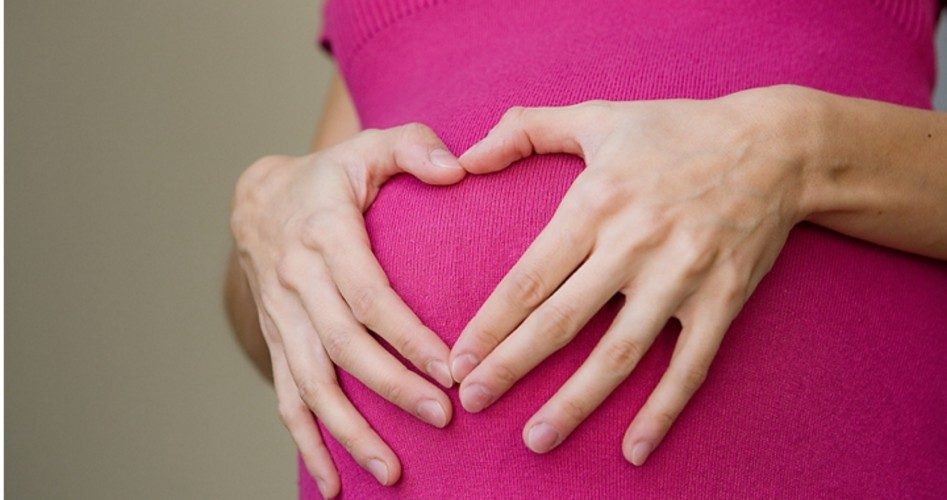
A Nevada judge has ruled against forcing a mentally disabled Reno woman to have an abortion, an option he was considering against the wishes of her Catholic, pro-life parents. Thirty-two-year-old Elisa Bauer, who has the mental capacity of a six-year-old, became pregnant a little over three months ago after wandering from her Reno group home. Her parents and legal guardians, Bill and Amy Bauer, do not know if their daughter was raped or had consensual sex. The father has not been identified.
While Elisa and her parents chose to have the baby, social services officials from the county asked the court to get involved, arguing that a hearing was necessary to determine the potential negative impact the birth might have on both Ms. Bauer and her baby. The case ultimately went all the way to the Nevada Supreme Court, which denied a request from the parents to block Washoe County District Judge Egan Walker from conducting the hearings into the potential risks of the woman’s pregnancy.
The Bauers “argued that the judge lacked the authority to terminate the pregnancy of their daughter,” reported Fox News. “They claimed they have exclusive authority over her health care decisions, and they want their daughter to carry the baby to term in line with their Catholic religious beliefs.” While the state high court ruled against them, Judge Walker agreed that while there were health risks for both the woman and her baby, expert witnesses said there wasn’t a compelling medical reason to abort the baby. Walker said that he will hold additional hearings to determine the best way for all parties involved in the case to work together to ensure a safe delivery for both mother and baby.
Melissa Clement, president of Nevada Right to Life, expressed her relief that the judge had removed abortion as a possible outcome for the case. “We are pleased that Elisa will be able to carry her baby to term,” she said, “and that the court recognized that childbirth is a natural process and is the generally accepted course of treatment for pregnancy.”
Elisa Bauer, who was adopted off the streets of Costa Rica by the Bauers some 20 years ago, suffers from the effects of fetal alcohol syndrome, including epilepsy and bipolar disorder. “When the Court became aware of her pregnancy and the wishes of the Bauers, Judge Walker took the extraordinary step of appointing a guardian ad litem and a court appointed attorney for Elisa,” explained Nevada Right to Life. “The first hearing included testimony from two local obstetricians, one proposing that abortion and sterilization was the recommended course of treatment. The second maintained that otherwise healthy women with epilepsy and mental issues are treated successfully and most often carry their pregnancies to term.”
According to the state pro-life organization, the first hearing over the plight of Ms. Bauer and her pre-born baby was noticeably adversarial toward the notion that the baby should be allowed to live, with the county’s legal team appearing to push the assumption that since the circumstance of the case weren’t ideal and the future for mother and child uncertain, the only rational decision the judge could make would be to order that Ms. Bauer’s baby be aborted.
By contrast, “the worldview represented by the Bauers’ attorney, Jason Guinasso, presented a calm and rational alternative, namely, that a physically healthy mother and a healthy baby can be supported throughout the pregnancy, even when the circumstances are not ideal, and that a number of qualified adoptive parents stand ready to raise this baby.”
As Guinasso chipped away at the assumption that abortion was the only option, demonstrating a more hopeful approach to the future of Ms. Bauer and her baby, the tide began to change in the hearings. With expert testimony strongly supporting the case for the life of the baby, Judge Walker ultimately ruled on November 14 that terminating Ms. Bauer’s pregnancy was no longer an option, and that both the family and the county would continue to discuss how to guarantee a safe and successful pregnancy for Elisa Bauer and the best future for her baby.
While it appears that this case has been successfully resolved, Guinasso said the potential that existed for a more tragic outcome points out the need for legal limits in the extent to which judges can intrude into the private affairs of families. “I’m really disturbed,” Guinasso told LifeSiteNews.com. “One of the things that I’ve come away with is just the extraordinary power that judges wield in these guardianship proceedings.”
Nevada Right to Life noted that the case points to “the need for legislative and judicial scrutiny to protect vulnerable adults, adoptive parents, and guardians across the country. The potential for a judge to overstep statutory boundaries and insert extra-familial forces into a family’s decision-making in healthcare decisions is of grave concern. Issues of the protection of life, healthcare rationing, and violations of the fundamental right of religious liberty swirl about in this case.”



